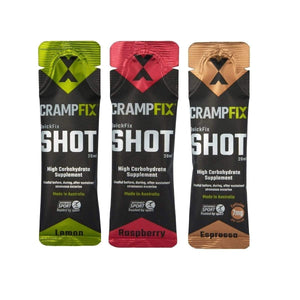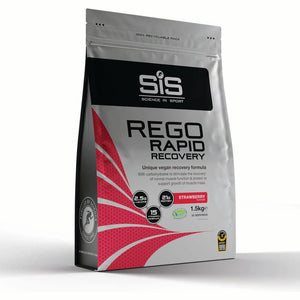
Product Insights
Discover more about the products in this article

C30 Sports Drink Mix
Featured Products
Nutrition for Team Sports
There is much less informational research and advice available surrounding nutrition for team sports compared to other sports such as running and cycling. While many principles will remain the same across sports, especially regarding the importance of maximising physical performance and boosting energy levels, there are also some variations that can make fuelling for a team sport unique.
Before The Match
The process of fuelling up for matches starts days before kick-off.
Firstly, it is very important that your diet has enough carbohydrates to fully stock glycogen stores. This is because carbohydrates are stored in the body as glycogen, which is the primary source for energy, and depleting glycogen levels causes fatigue, compromising focus, performance and ability to output maximum speed and explosivity.
Ideally, you should consume approximately 7g-12g of carbohydrates per 1kg of body mass per day in the 48-hour window leading up to a match (compared to the normal rate of 5g per 1kg). A great option exercised by many professional athletes for increasing the amount of carbohydrates consumed, while not disrupting a nutritional diet, is the consumption of carbohydrate drinks such as Neversecond C30 Sports Drink Mix with 30g carbohydrate per 500ml serving throughout the day, as well as the consumption of extra snacks such as energy bars and energy chews.
Moreover, the most important window for pre-match hydration is the last 48 hours before kick-off. During this period, it is vital that enough liquid is taken onboard to supplement both physical and cognitive performance. In addition to water intake, electrolyte balance is also very important for you because minerals such as sodium, potassium and magnesium are lost through sweat during exercise. To prevent the risks of overhydration, sports drink containing electrolyte tabs/powders can be extremely beneficial.
On the day of the match, carbohydrate intake in very important to boost stores and generate more energy – a target level of 6-10g of carbohydrate per 1kg of body mass would be ideal. At this stage, it would also be useful for you to introduce some foods containing protein to increase the volume of amino acids in the body which will work to reduce the amount of muscle breakdown and promote muscular recovery on-the-go and during breaks.
During The Match
Over 50% of team sport athletes fail to consume 30g of carbohydrates per hour, and studies have shown that glycogen levels can be almost fully depleted by half-time, leading to fatigue and reduced performance in the second half of the match. Therefore, if it is possible, you should consume energy during play, or small breaks in play, or, at a bare minimum, at half-time. This energy supply can come in the form of energy gels, energy drinks and energy chews, where consumption meets the requirements of around 1g of carbohydrate per 1kg of body mass per hour of exercise. There is also the option of consuming more solid sources of carbohydrates at half-time in a match in the form of energy bars.
In the case of knockout matches where extra-time and penalties are required, it would be especially beneficial for you to consume additional carbohydrates to rapidly provide additional bursts of energy to maintain performance and concentration levels. This rapid requirement for energy can be achieved through the consumption of energy gels in the small breaks between the periods or while you are waiting to take their penalty.
Cramps in football matches are often caused by poor nutrition. This is because football is a high-intensity sport that requires a lot of energy and electrolytes. When athletes do not eat a balanced diet or drink enough fluids, their bodies may not have the nutrients they need to function properly. This can lead to muscle cramps, which can be painful and debilitating. If the worst does happen there are products designed to help players recovery quickly and keep playing such as CrampFix QuickFix Shot, providing rapid relief from cramps in as little as 30 seconds by blocking the nerves causing muscle cramps.
After The Match
Following a match, glycogen sources will be heavily depleted and muscle damaged will have occurred. Therefore, it is vital that your next meal is very high in carbohydrates and proteins. our next meal is very high in carbohydrates and proteins. While it is most ideal to consume a large meal within 30 minutes to 2 hours of the final whistle, this is not always possible due to many factors including travel and the time of day. Therefore, other recovery products such as recovery drinks and recovery bars may be more suitable to meet the recommendations of at least 1 gram of carbohydrates per 1kg of body mass and 0.25-0.3 grams of protein per 1kg of body mass. One product that is highly recommended for rapid recovery is Science in Sport REGO Rapid Recovery (22g carbohydrates and 20g protein) and a vegan option OTE Soya Protein Drink. In addition, Beetroot Juice can also be used to aid recovery due to its natural source of nitrates which improves blood flow and oxygen delivery to muscles.
Once your carbohydrate levels are restocked and your muscles have been repaired, your nutritional focus can then turn to preparing for the next period of matches or training sessions. The period between matches can also be used as an experimental window to trial any products in training, so that you have a better understanding of what works for you and your body in matches.
During weeks when you have more than one match, nutrition is even more vital for maintaining high performance levels and rapid recovery for quick turnarounds. In these scenarios, it would be most ideal to maintain a high carbohydrate diet throughout this period to counteract the increasing volumes of fatigue. Many of your meals should also be high in protein to prevent muscles from experiencing too much damage which can lead to injury. Hydration is also extremely important during this period because it enhances performance, promotes recovery and aids the digestion and absorption of nutrients such as potassium, sodium, calcium, and magnesium, which would prevent you from experiencing muscle cramps.
Other products that are available to aid recovery include compression garments which are helpful for reducing muscle soreness and improving recovery, and massage bars/balls which are great for relieving muscle tension, increasing blood circulation and promoting recovery.




